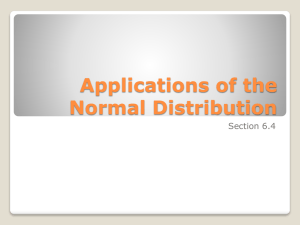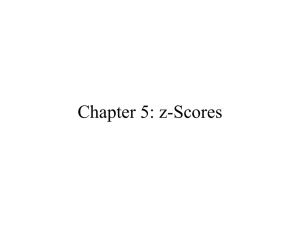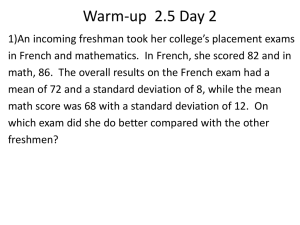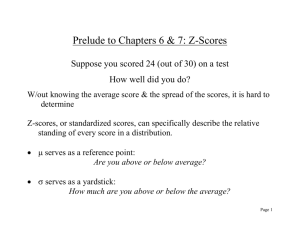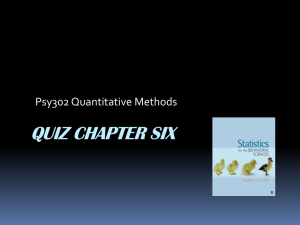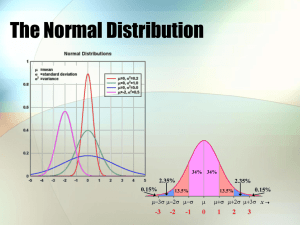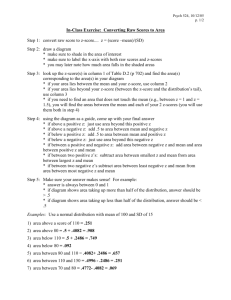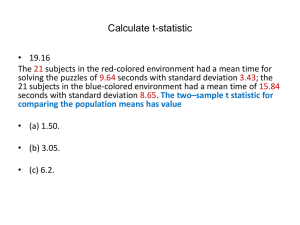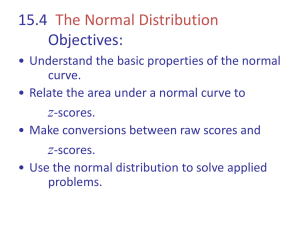Standardized Scores (Z
advertisement
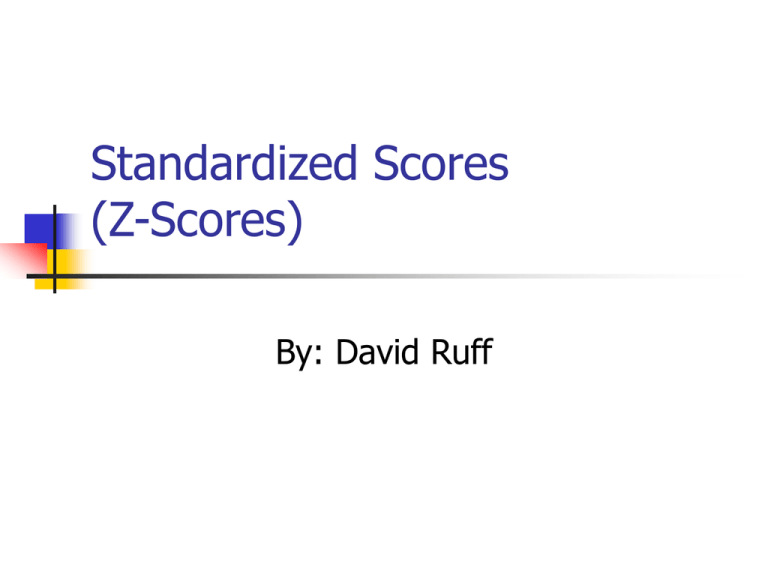
Standardized Scores (Z-Scores) By: David Ruff Z-Score Defined The number of standard deviations a raw score (individual score) deviates from the mean Computing Z-Score X Zx = X - ¯ sx where: Zx= standardized score for a value of X = number of standard deviations a raw score (X-score) deviates from the mean X= an interval/ratio variable X= the mean of X ¯ sx= the standard deviation of X Direction of a Z-score The sign of any Z-score indicates the direction of a score: whether that observation fell above the mean (the positive direction) or below the mean (the negative direction) If a raw score is below the mean, the zscore will be negative, and vice versa Comparing variables with very different observed units of measure Example of comparing an SAT score to an ACT score Mary’s ACT score is 26. Jason’s SAT score is 900. Who did better? The mean SAT score is 1000 with a standard deviation of 100 SAT points. The mean ACT score is 22 with a standard deviation of 2 ACT points. Let’s find the z-scores Jason: Zx = 900-1000 = -1 100 Mary: Zx = 26-22 = +2 2 From these findings, we gather that Jason’s score is 1 standard deviation below the mean SAT score and Mary’s score is 2 standard deviations above the mean ACT score. Therefore, Mary’s score is relatively better. Z-scores and the normal curve SD SD SD SD SD 68% 95% 99% SD SD SD SD Interpreting the graph For any normally distributed variable: 50% of the scores fall above the mean and 50% fall below. Approximately 68% of the scores fall within plus and minus 1 Z-score from the mean. Approximately 95% of the scores fall within plus and minus 2 Z-scores from the mean. 99.7% of the scores fall within plus and minus 3 Z-scores from the mean. Example Suppose a student is applying to various law schools and wishes to gain an idea of what his GPA and LSAT scores will need to be in order to be admitted. Assume the scores are normally distributed The mean GPA is a 3.0 with a standard deviation of .2 The mean LSAT score is a 155 with a standard deviation of 7 GPA SD 2.4 SD 2.6 SD 2.8 SD 3.0 68% 95% 99% SD 3.2 SD 3.4 SD 3.6 LSAT Scores SD 134 SD 141 SD 148 SD 155 68% 95% 99% SD 162 SD 169 SD 176 What we’ve learned The more positive a z-score is, the more competitive the applicant’s scores are. The top 16% for GPA is from a 3.2 upwards; for LSAT score, from 162 upwards. The top 2.5% for GPA from a 3.2 upwards; for LSAT score, from 169 upwards. An LSAT score of 176 falls within the top 1%, as does a GPA of 3.6. Lesson: the z-score is a great tool for analyzing the range within which a certain percentage of a population’s scores will fall. Conclusions Z-score is defined as the number of standard deviations from the mean. Z-score is useful in comparing variables with very different observed units of measure. Z-score allows for precise predictions to be made of how many of a population’s scores fall within a score range in a normal distribution. Works Cited Ritchey, Ferris. The Statistical Imagination. New York: McGrawHill, 2000. Tushar Mehta Excel Page. <http://www.tusharmehta.com/excel/charts/normal_dist ribution/>

